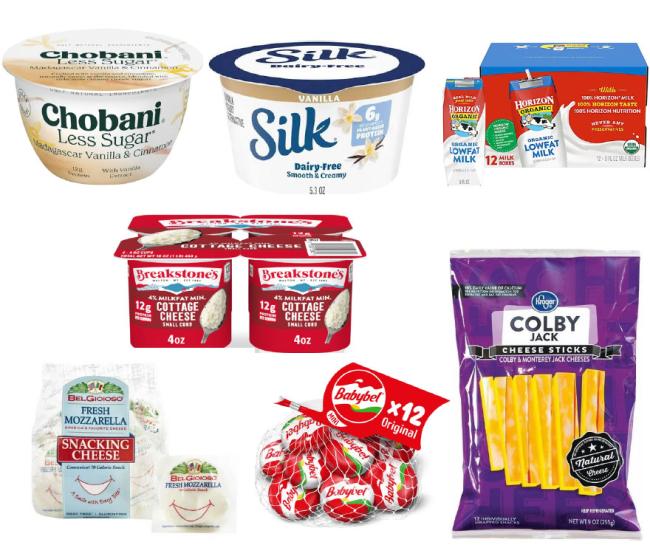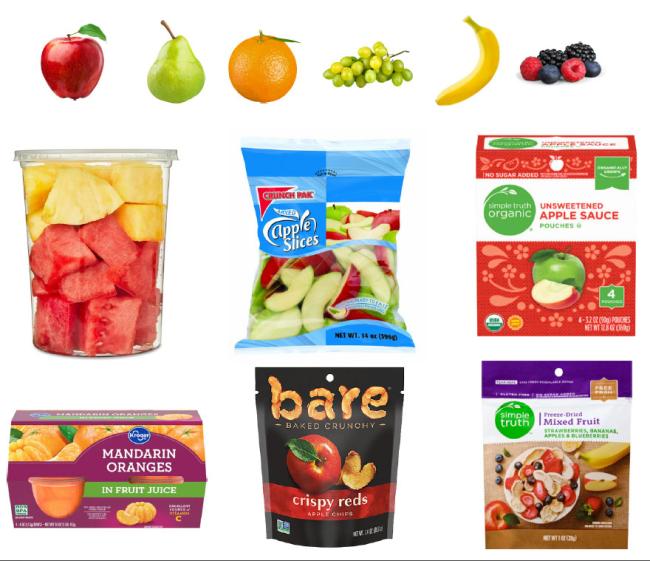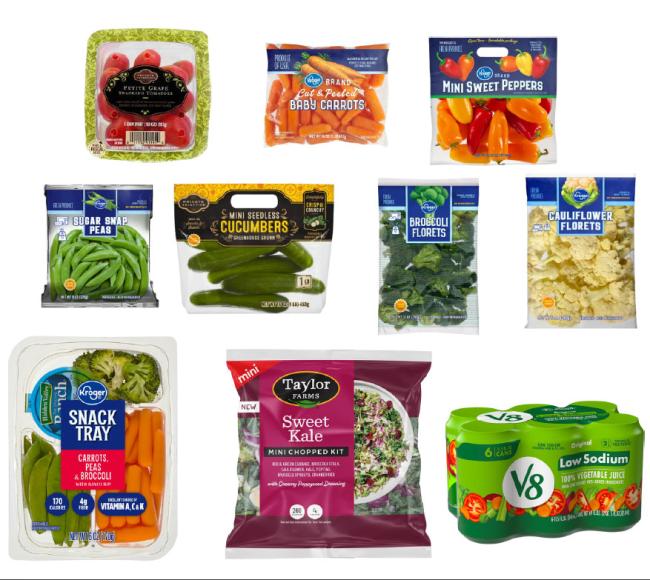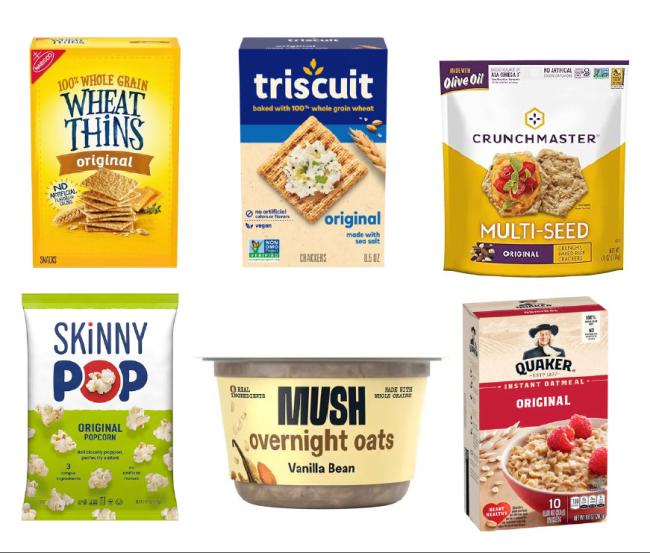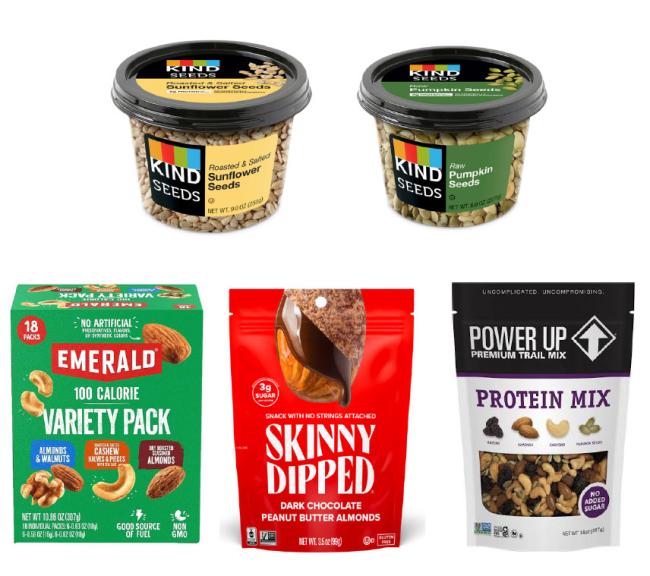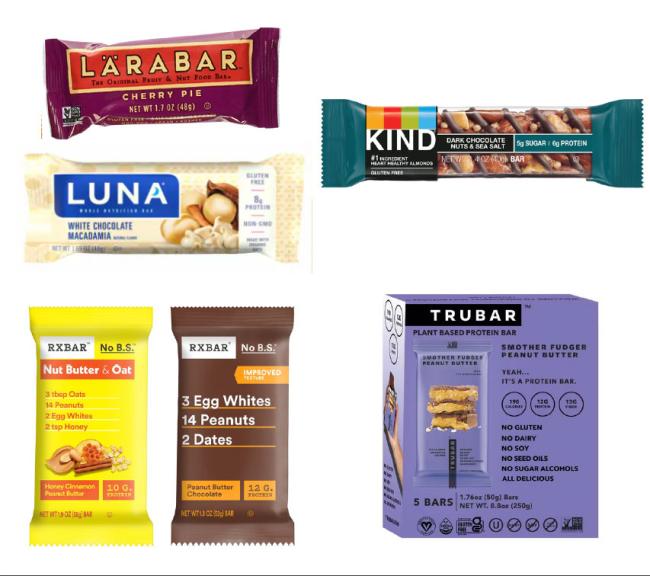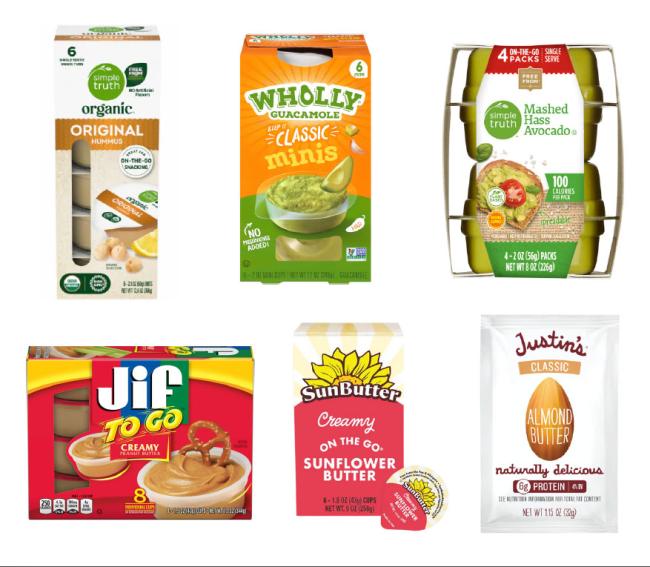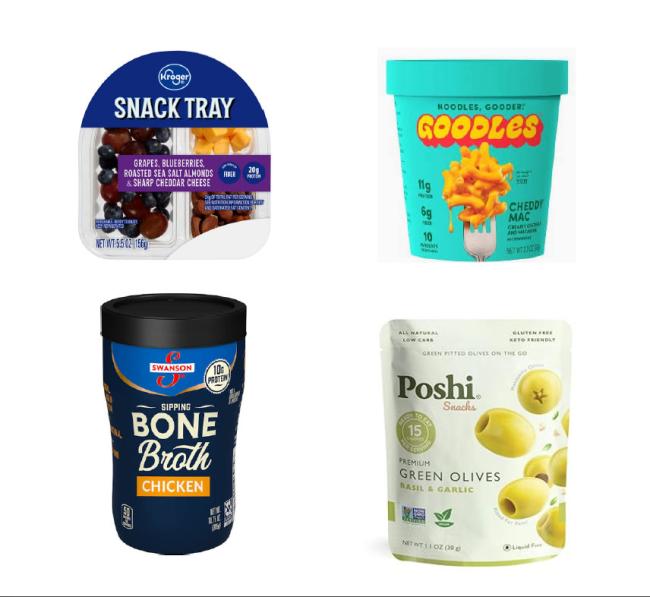
Grab-and-Go Snacks
But I thought snacking was “bad” for me?
When done with intention, snacking can have many benefits:
Keeps energy levels steady
Snacks can prevent blood sugar spikes and crashes, which means fewer mid-day slumps or cravings.
Prevents overeating later
Snacks can keep you from getting overly hungry, which makes it easier to make mindful choices at your next meal.
Improves focus and productivity
Snacks provide a steady supply of nutrients that fuel your brain and body.
Helps meet nutrition needs
Snacks are an opportunity to add nutrient-dense foods that fill gaps in your diet.
Encourages better mood
Snacks promote stable blood sugar, which can improve mood and reduce irritability (aka “being hangry”).
Snacking myths
MYTH: Everyone needs to snack.
TRUTH: You have to decide if it’s right for you.
MYTH: Snacking spoils your appetite.
TRUTH: It can help manage your appetite.
MYTH: You should never snack at night.
TRUTH: It depends on your lifestyle and health needs.
Guiding principles for snacking
Tune in to your body’s cues - hunger, mood, energy, ability
to focus, etc.
Focus on nutrient-dense foods to optimize the benefits of snacking.
Be prepared with the snacks you need, when and where you need them.
Stay mindful of portions (and do not eat out of large packages!)
Grab-and-Go Snack Ideas
Proteins
Fruits
Vegetables
Whole grains
Nuts and seeds
Bars
Dips and spreads

